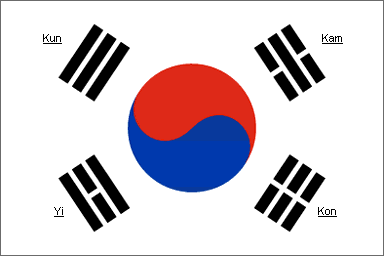|
The Life of a MigrantBy Jenni Lee
|
|
| Return to Jenni's Homepage |
I interviewed my mother because she is my inspiration to do well in life. The reason why she left home was because she wanted to start a new life for her future family. My father was first to come in September 25. 1975, then my mother came on May 15, 1978 to be with him. Living in Korea was hard for them because it was so strict there when it came to school and jobs. Fortunately, my parents were able to afford to get an education up to college, others were not as fortunate. They wanted their children (my siblings and I) to have an easier life in the States. As far as the whole language barrier, it was hard for them to learn English when they first arrived. They had friends here to speak in Korean to but as time went by, they got use to the language and made it their second home language. They took English back in Korea but they only learned grammar so it took them about a year to get use to and about two years to master. The best they got from coming to the States was their success in the business world. It took them longer than others because of the whole language barrier, but they did what they had to do, starting small and going from working at businesses, then managing restaurants, then working at the post office for quite a while, then finally going into the business they love and successfully operating that. The discipline they learned in Korea helped them to stay discipline here in the States because the States are more lenient than what they expect in Korea. The hardest thing for them to do was to leave all their friends and family behind in the only home that they knew. It was hard starting fresh in a foreign land with some other language they weren't use to. They were home sick, but stuck it out because they knew that they had a calling to be in the States and make it successfully. My mother is going back to Korea with my father for the first time since they arrived, on May 15, 2004, she is really excited about that because it is on the same day when she arrived the first time. In order for them to keep their heritage alive to this day, they follow traditional Korean holidays, attend a Korean church, speak the Korean language at home, have Korean friends, eat Korean food, keep Korean morals and values, and pretty much anything else that has to do with the Korean tradition. They came here to live the American way but would never forget their heritage. They have instilled their heritage in their children and we have come to value it as much as they do. In this migration class, we read a book called "Voyages". It's a book about the Tongan people. When I read it, it reminds me of my family. The book says that with this family, the daughters ask for their fathers permission to marry. Fathers would rather have their daughters to marry within the same race and religion because it’s “easy”. (p 74-75) Until recently, I understood this very well because I believed my father was the same way, After I've talked to him about things, I've noticed that he's been accustomed to some of the American ways. There was another book we read by Grace Chang called "Disposable Domestics" and I related to this book because coming from a family who knows first hand on what it’s like to adapt to a new place, I found it interesting on how well I could relate to the people in the book. The different generations showed the different viewpoints on everyone’s stand point. With this, I also got a better understanding on what my family could have gone through as they moved from Korea to America. It told me hardships that they faced and some possible scenarios my family might have gone through. "Crossing The BLVD", in this book, it seems like they’ve struggled a lot due to a language barrier subjecting them to stay within their comfort zone until they’ve figured out how to communicate with others. I feel a connection to them in this way because I know so many people who stay within their comfort zone in New York and California. Some people will never have to learn the English language because of the zoning in those states. Each zone consists of their own nationalities and little towns that are “known” to be that particular groups of people. I just went to California this past Spring Break and went to K-Town (Korea town), V-Town (Vietnamese town), and little Mexico, all in L.A. In all those regions, it didn’t matter what nationality you were, if you were in K-Town, you spoke Korean. "Refugee Women" was an article on women who lived in the States who were exploited to disrespect and many hardships because they did not have as much power as men did. I believe my mother did not face it as much as others did. When she got here, she went into the restaurant business with my father, then worked for the post office for about 15+ years, then went into her own business. She has come far from nothing and did not let society tell her she could not do it as a migrant woman. I am the youngest out of three kids, I'm very dependent on my family for everything. My mother is my inspiration to become independent and to know that I can do things for myself without relying on others to help me. Learn about South Korean History
|
|
|
|


